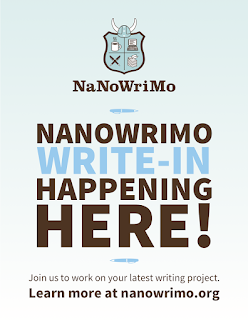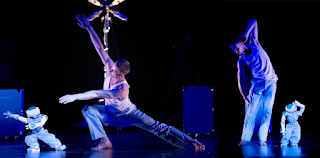On July 8th we posted the first in a series of three blog posts about closing Locus–Muzeum, Locus’s first coworking space. Just to be sure it remains clear, Locus Workspace itself is not closing, just that one location. We are consolidating at Locus’s Vinohrady location at Slezská 45.
Given how much personal meaning Locus–Muzeum had for me and all the good things that were part of that coworking space which made closing so hard, why would there also be relief? As with the post describing the good things that made closing sad, there were three main negatives. With the closure of that location, we get to say goodbye to those negative. Aaaahhhhh. Relief. Here they are…
1. Locus–Muzeum was never the ideal coworking space
Locus started at the Muzeum location for many reasons, none of which were because it was an ideal space for coworking. Locus began in a 105 square meter flat. It’s a beautiful, homey flat with three walk through rooms, a jacuzzi-style bathtub, a full-kitchen. The three walk through rooms made it in many ways better for a coworking space than for a flat, but still it was a flat. Not great for events, no good way to expand or even improve the interior meaningfully, no private office options, no place for a future coworking cafe.
So why start with a non-ideal spot? The location was great (a 3 minute walk from the Muzeum metro, couldn’t be more central). The price was amazing (17 000 Kc + 4000 Kc estimated for utilities). And I was committed to starting small and learning from experience rather than trying to get investors and build the perfect model from scratch and find out later that it was the wrong model, or that I just wasn’t suited for the job. For the price and location and style, I hadn’t seen anything close to as nice for coworking in Prague, giving my commitment to starting small and learning from experience. It was the perfect “starter model.”
But from the beginning it was just an experimental “minimum viable product;” a test case to learn how coworking works, to see how it suited me, and to make sure my idea of a “sure thing” social business could actually succeed. Assuming all went well, I expected to move on to a different location after a year or two. From that perspective, closing Locus–Muzeum was a positive step in that direction, it just took a half decade longer than expected.
2. Adding an extra location seems like it will more than double the value, but take less than double the work. It won’t.
In late 2012 we had 78 members, the space was full, and I had to decide whether to create a waitlist and stop accepting new members, or to expand and open a second location. We weren’t making enough money to justify continuing long-term with just one location, so it was really a choice between expanding then, expanding later, or just closing down. I decided it was the right time to expand.
Part of my reasoning about expanding was the idea that having two locations in Prague would add value to each member and to each location: members would have the option to work from more than one place (for a small extra fee), and the marketing put toward either location would add value to the other one. Along with the synergy expected from a 2nd location, it also seemed like there would be much less work per space. We could have events at one location or the other, we could use the same cleaners at a discount price, interns would have no difficulty moving between spaces if needed since the systems were the same, accounting, legal advice, etc., would essentially be for the same business.
I also decided to increase prices for new members. Prices were in fact too low to make this a sustainable business, and I thought with the added value and expected added exposure, this would be a good time for a price increase. Given what I knew then, I think it was (mostly) a good decision.
Given what I know now, it was a terrible decision. Thank you, Berta, Locus’s employee at the time, for working through the most difficult time in Locus’s history and putting up with me during the most stressful period this business owner has yet experienced. So why were these decisions (to expand and increase the prices) so bad?
First of all, we decided to expand right at Locus’s peak (though I didn’t know at the time it was a peak). Shortly after signing the contract, we lost about 25% of Locus’s membership. Some left because of the season (I now know there’s always a downturn at the end of the calendar year for several months into the new year), some left because the space was fuller than ever and they wanted to work from a less-crowded space, and some because a tight-knit group decided to get a private office together and some of their colleagues moved along with them. The loss in members—I think without any other loss in quality—made the space significantly less attractive as a coworking space.
And just as that new reality hit, it was time to open the new location. Already there were too few members for the original location, but I remained hopeful that the expansion and the change in seasons would lead to the growth we expected. Of course the expansion didn’t work that way.
Many members from the old location moved to the new one, making the original location even less “coworking like”, but not enough to give the new space more than a mostly empty feeling. A big part of what people pay for when they join a coworking space is the community, or at least the social setting, working productively alongside others with that motivating social pressure and the comfort of not being alone. Almost overnight, that was gone.
When we originally opened Locus, we explicitly set full-time membership at half-price, making it clear that it was a special price to compensate for the fact that we didn’t yet have the community that gives a big part of the value to coworking. That worked wonderfully and we were able to double prices later without any surprise to our members or any net loss in memberships.
But now we were already charging full price and suddenly we didn’t have enough members either location to feel like a healthy coworking space. We couldn’t turn back the prices without a LOT of work and a big loss from our existing members, and we needed the money. For the first year or so of having the 2nd location open, we were very near to deciding to close the new location on more than one occasion. It remained far less full than the original and cost more to operate. That didn’t help member comfort, since of course the members want to know their office is not on the verge of closing from day to day.
But then something changed. The new location gradually became more popular and profitable than the original, and that trend just continued over time, until the new Locus (objectively a better place for coworking) was doing great in its own right. The original location, on the other hand, never recovered.
A second big problem with the expansion was that rather than adding value, the two locations seemed to reduce the value. Almost no one worked at both locations, and we had very little success signing up new members (for the first time in our history, we didn’t get a new member for more than a month). Unfortunately, I made the novice mistake of changing two things at the same time, increasing the prices and opening a second location. Along with the decrease in community in both locations, this made it difficult to guess well about what caused the stall in new memberships. I think all three changes were part of the cause.
The price change was an obvious culprit. It’s the only reliable metric people thinking about joining a coworking space can use before they actually visit a space (and most people don’t visit more than one or two spaces), since you need more than a tour to get a real feel for the community. We cater to freelancers and other location-independent professionals, and that particular demographic also thinks about the cost of an office more than, say, your average Silicon Valley billionaire.
But the price increase wasn’t so extreme and it didn’t make sense to me that it would have such a large impact. Counterintuitively, I think the bigger culprit was paradox of choice: members had to pick a home location and pay a 5% surcharge to use both locations. I thought the price was so small it would only stop people who wouldn’t use a second location at all. But in fact almost no one wanted to use both locations, so even the 5% surcharge was enough to think twice. More than that, though, just having to choose a location added a step in the decision process. Perhaps it was easier not to make a choice at all, and just try a different coworking space instead. Well there’s a hypothesis anyway. Thankfully, it was relatively easy to address both problems. The price change only affected new members, so we rolled back prices to the pre-expansion rates. We removed the paradox of choice by dropping the need to choose between spaces altogether. All members could work at either location, no surcharge. Almost immediately, new members started to roll in. Of course, with a lot more experience now, I recognize it all could have been due to the change in the season, chance, and other events outside my frame.
But there were other costs to the split locations. We had to choose which improvements to make where, and which events to hold where, and in general the two spaces were different, with distinct pros and cons. Many members would perceive an improvement or an offering at one location as a kind of diminished relative value of their own location, so there was a real sense in which we had to strive to offer the same kinds of activities at each location, even though the demand wasn’t there and the expenses and work would be much higher. As such, the fact that the two spaces were working largely as a single coworking membership meant a meaningful loss in perceived value for everyone. Furthermore, since the managers had to worry about two spaces across town, it also meant a large objective increase in work for us and a drop in the quality of service provided to either space. And members felt the difference.
It eventually became clear that either the two locations should be completely separate entities, or they just shouldn’t be located in the same town at all. For this reason alone, I decided it would be better to have a single great space than to have two separate spaces each trying to do part of the job. A better experience for members, a better coworking space, and more time for me to think about the bigger picture rather than day-to-day management issues. Another reason it felt right to close Locus–Muzeum.
3. Oh the power of a bad building owner.
There’s lots to be said for leasing rather than buying the building where you run your business, particularly if it’s in a rapidly developing industry like coworking and you’re still learning about how to run the business. The obvious benefit is cost: we couldn’t have afforded to buy our building even if we’d wanted to. And, of course, as an entrepreneur learns over time what they want from the business, the ideal location is apt to change. It is nice to have a relatively easy option to move.
That said, there are many costs to not owning the property. There are many decisions about access to the space and the kinds of services you can provide that depend on the good will of the building owner (or a really good original contract). What’s more, as many people with experience in the coworking industry can attest, the building owners are often not the upstanding citizens we first take them to be. Many coworking space owners have told the story of their landlord or landlady deciding that coworking seems like a very nice business model and deciding to ramp up the rent or just open a competing space with better terms in the same building. Alternatively, the rents may just go up on their own, or the owner may decide coworking is not a good fit for their building and make the life of the tenant difficult, even if the contract is long term and doesn’t permit raising the rent.
In Locus’s case, the owner—or perhaps the new property management company that took over for the owner—simply began to do a series of harmful things for our business and refused to communicate about it or help remedy it. Try as I might, I could not come up with a reasonable story about why it was happening, so I made up unreasonable stories (hey, they’re the best I had). If they wanted higher rent or just wanted us out of the building, they could have simply raised the rents or ended our lease agreement, which was only on a year-to-year basis as it was. Instead, they just started to act like slum lords.
They changed the bells for each flat to a system that made events in the space extremely hard to manage, and refused to let us pay for our own bell system to solve the problem. They took promised advertising space off the outside of the building and gave it to other tenants without telling us. The heat stopped working in winter, for 1.5 months, and we had to battle to get space heaters that would warm the rooms enough for people to work, much less to get reimbursed for the costs. They stopped paying for interior repairs that were part of the contract or verbal agreements. They invoiced Locus for private contracts they had with Locus’s members, and they invoiced us for other services they never provided. And in every case, just to get a response about the issues often took weeks or months. It came to the point where we could not make improvements to the interior without the sense we were putting it toward a lost cause, and Locus’s Muzeum members were left with the general sense that we might announce the closing of the business any day, since it was true. After about four years of what had been a great relationship with the property manager and the building owner, a change in management and the unwillingness of the owner to discuss any of it with us precipitated a complete breakdown in our ability to manage the space.
It must be true in every business, but it is no less true in the coworking business: a bad landlord/landlady can be a catastrophe. It was clearly time to leave. I cannot do justice to the sense of relief we felt in finally closing Locus’s Muzeum location just with respect to allowing us to end an unstable business relationship. Since it was due time to close Locus–Muzeum anyway, we owe a big thank you to the property owner and the management company for making that sad reality feel like such a great relief!
 For most NaNoWriMo participants, this is a novel, but NaNoRebels may choose to write a series of poems, or essays, or work on a thesis, or storyboard an indie film, or whatever their beautiful, messy minds come up with. In the past 15 years, I’ve personally used NaNoWriMo for momentum to edit existing drafts and do a series of travel memoir essays in addition to novel first drafts.
For most NaNoWriMo participants, this is a novel, but NaNoRebels may choose to write a series of poems, or essays, or work on a thesis, or storyboard an indie film, or whatever their beautiful, messy minds come up with. In the past 15 years, I’ve personally used NaNoWriMo for momentum to edit existing drafts and do a series of travel memoir essays in addition to novel first drafts. Though the NaNoWriMo founders maintained that everyone could write a novel with just the scraps of free time that we have when waiting for the tram, for rice to boil, for the conference call to be over, most of us find it helpful during the month to set aside longer chunks of time to write.
Though the NaNoWriMo founders maintained that everyone could write a novel with just the scraps of free time that we have when waiting for the tram, for rice to boil, for the conference call to be over, most of us find it helpful during the month to set aside longer chunks of time to write.













 while men wide and shallow ones.) I’ve added several women to my network from Locus, and started an informal dinner group to encourage young professional women to support each other, over a glass of wine.
while men wide and shallow ones.) I’ve added several women to my network from Locus, and started an informal dinner group to encourage young professional women to support each other, over a glass of wine.
 Once I’d had that moment of realization, that my co-working space was my community, I started to look around for other ways to participate. Engaged in the social media connection and found easy, fun ways to stay involved. I am looking forward to the Christmas Party catered by
Once I’d had that moment of realization, that my co-working space was my community, I started to look around for other ways to participate. Engaged in the social media connection and found easy, fun ways to stay involved. I am looking forward to the Christmas Party catered by 